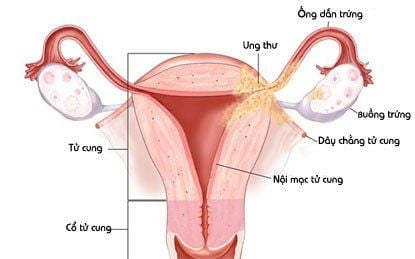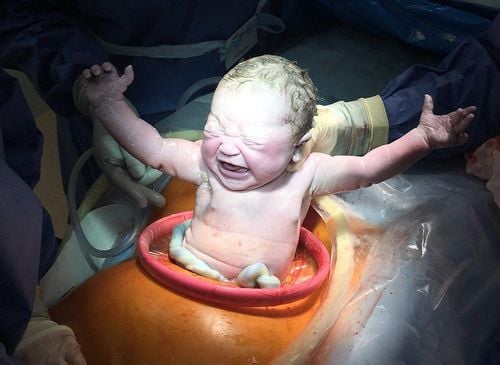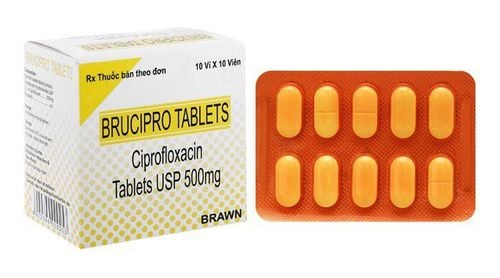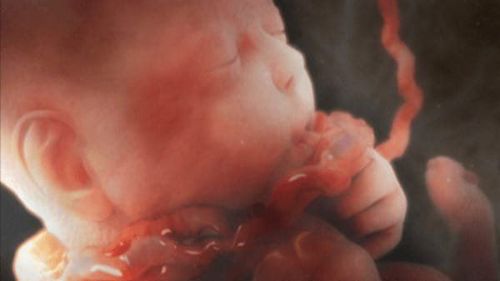This is an automatically translated article.
This article is professionally consulted by Master, Doctor Nguyen Nhu Thu Truc - Obstetrician and Gynecologist - Department of Obstetrics and Gynecology - Vinmec Nha Trang International General Hospital. Doctor has more than 8 years of experience in the field of Obstetrics and Gynecology.Postpartum infection is an infection that originates from a woman's genitals after giving birth or by cesarean section or during breastfeeding.
This is one of the obstetric complications that can cause maternal death complications if not treated definitively and promptly. In addition to trauma occurring during delivery or cesarean section, physiological changes during pregnancy also contribute to the development of postpartum infection. Some common infections include:
Endometritis, endometrial infection Mastitis, breast infection Incision/perineal infection Urinary tract infection.
1. Causes of postpartum infection
Medically speaking, postpartum infection is a disease caused by bacteria in the genitals. When encountering a favorable environment such as postpartum women with residual placenta, the process of childbirth and procedures in a non-sterile environment, medical equipment that is not sterile, and vaginal hygiene of pregnant women after childbirth. poor pregnancy, stillbirth, premature birth, pregnant women who have had multiple miscarriages or abortions, infections after cesarean section... the easier it is for bacteria to attack from the genitals into the body by going against the negative currents. religion.In addition, during breastfeeding, many women abstain from bathing, wearing tight clothes that can't escape sweat, leading to a humid environment, so bacteria and viruses have the opportunity to develop, creating an infection.
Postpartum women often have vaginal discharge (productivity) within 7-10 days after giving birth. Short hospital follow-up is often insufficient to identify an infection.
Some risk factors for infection after birth:
Anemia, obesity, bacterial vaginosis before and during pregnancy Vaginal examination multiple times during labor Protracted labor, premature rupture of membranes Streptococcus group B localized to the vagina There is bleeding after giving birth
2. Postpartum infection symptoms
The most obvious sign to identify a pregnant woman with an infection after giving birth is bleeding (with a risk within 20 to 24 hours after giving birth), the patient will now see a lot of bleeding, dizziness, pale face, sweaty. In case of infection after childbirth in the perineal area, the most obvious sign is a swollen vulva, edema, and pus-filled perineal stitches.If the pregnant woman has an infection in the uterus, she often has lower stomach pain, low fever, a lot of foul-smelling discharge, and even bleeding. About 1 week after giving birth, the mother had a high fever <390C, irritability, fatigue, and blue skin.

If the infection originates from the incision, the mother will notice that the skin in the incision area is red, swollen, exudative, hot, sensitive, painful, the incision has signs of skin opening.
In case of infection from the urinary tract, women will find it difficult to urinate, painful urination, the feeling of having to urinate many times but the urine output is very little or no; foamy or bloody urine.
Currently, infection after childbirth is the concern of many women, if this disease is mild, it is only infected outside the genital tract or inside the uterus. If not detected, timely treatment will progress seriously, bacteria can enter through the uterus into the abdominal cavity causing peritonitis, and the bacteria enter through the bloodstream to enter the bloodstream and lead to peritonitis. Postpartum blood infection is extremely dangerous.
3. Effective prevention of postpartum infections
To effectively prevent postpartum infection, the principle of maintaining good hygiene is very important. In particular, during pregnancy, if a woman has symptoms or has a vaginal infection, she should be treated immediately under the examination and guidance of a doctor, absolutely do not bathe or soak in the pond. lake, dirty water. Daily need to clean the intimate area with clean water and do not douche the genitals deeply.In addition, to prevent infection after giving birth, pregnant women need to:
Do not have sexual intercourse immediately after giving birth, while the health has not recovered. Reproductive organs need to be 'rested' after going through pregnancy, labor, early postpartum sex will easily cause damage to the vagina and reproductive organs, leading to infection. bacterial infection. Every day, keep the intimate area dry and clean, do not use rough paper or scented wet towels to clean the vagina. Avoid walking a lot, avoid early exercise in the 1 month postpartum period. Regularly clean and change bedding. Clean the intimate area with boiled water to warm, absolutely do not douche deep in the vagina to avoid causing damage. Wash and clean every day, do not be excessively abstinent after giving birth. Constantly changing underwear to keep the genital area dry to avoid postpartum infection is also what women should do. Clean breasts before and after breastfeeding, change bras often. If you notice a discharge that changes color or has a foul odor, or is painful or swollen, you should notify your doctor immediately. 2 weeks after giving birth, take the initiative to check back to make sure your health status, prevent postpartum infections and detect problems, come up with a timely treatment plan.
Please dial HOTLINE for more information or register for an appointment HERE. Download MyVinmec app to make appointments faster and to manage your bookings easily.














